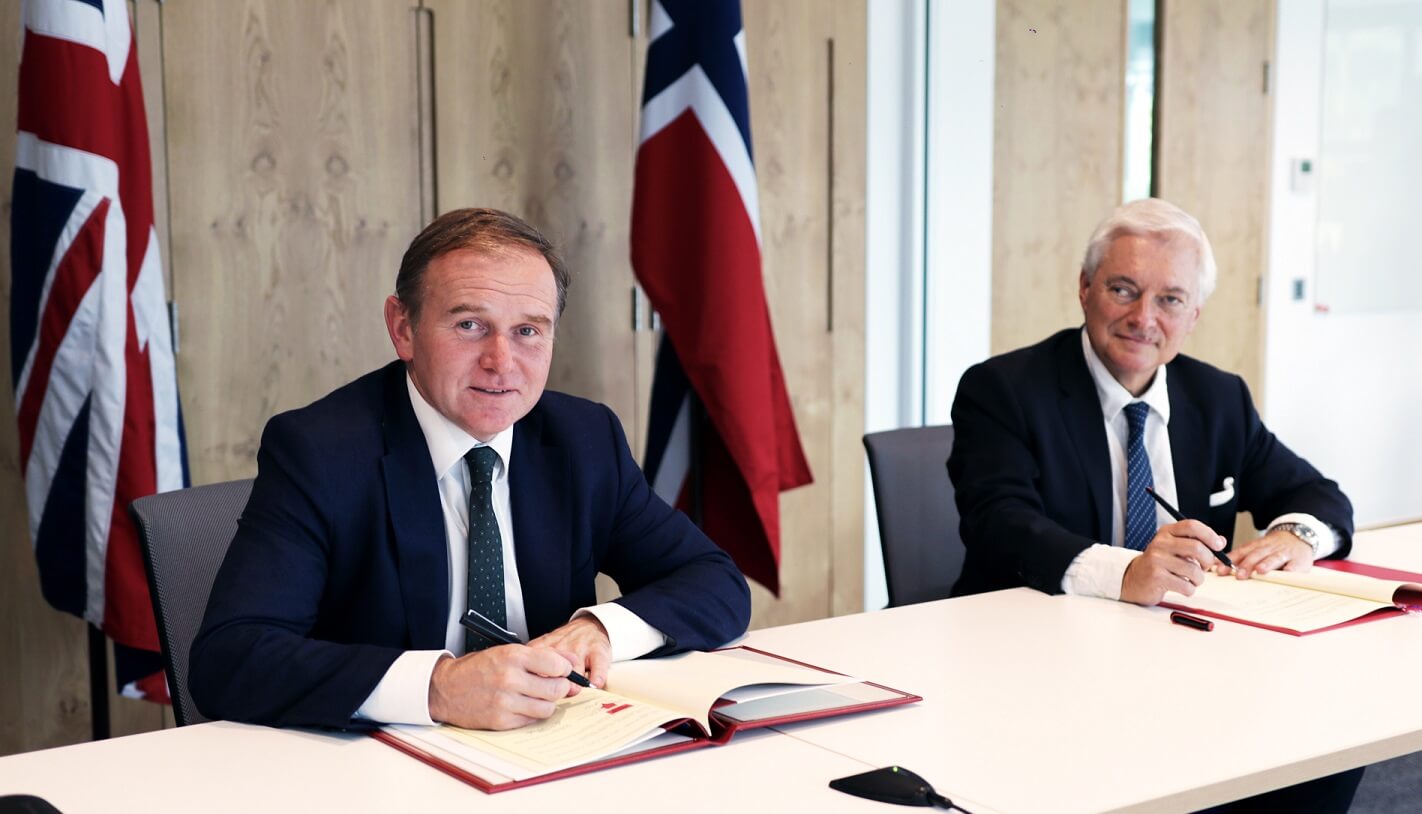On Wednesday, the United Kingdom (UK) entered into “The Framework Fisheries Agreement” with Norway. The document was signed by British Environment Secretary George Eustice and Norwegian Fisheries Minister Odd Emil Ingebrigtsen and will take effect from January 1, 2021. The agreement forms the framework for future UK-Norway negotiations on accessing British waters, and will also govern licensing, research and other control measures. This is the first such agreement signed by the UK in 40 years.
According to the document, the two countries will convene annually to discuss fishing quotas and the terms of access to British waters. With Norwegian fish worth about £32 million being brought to British ports every year, this is a crucial breakthrough for the UK, especially as it plans to exit from the European Union’s Common Fisheries Policy by the end of the year. Previously, the EU retained the right to negotiate on non-EU members’ access to British waters. However, with the UK’s departure from the EU, bilateral negotiations between the UK and non-members of the bloc, such as Norway, will determine their post-Brexit relationship.
Ine Eriksen Soreide, Norway’s foreign minister, expressed her support for the deal as it provided “a framework for extensive fisheries cooperation with the UK.” She said, “We look forward to putting in place a trilateral agreement between Norway, the UK, and the EU on the management of joint fish stocks in the North Sea, once Brexit becomes a reality.”
The fisheries issue has emerged as a significant sticking point in the EU-UK Brexit negotiations. The UK wants to achieve a Norway-like agreement with the EU, wherein quotas and access are annually negotiated. Barrie Deas, who is the chief executive of Britain’s National Federation of Fishermen’s Organisations, said that the deal with Norway clearly indicates that the EU’s resistance to such an agreement is an “aberration in international fisheries terms.” On the other hand, the EU wishes to secure a fixed fishing quota as a part of its post-Brexit deal with the UK. Brussels believes that providing the bloc access to British waters is the price that the UK will have to pay to secure a zero-tariff deal with the EU.
On Wednesday, the UK offered the EU a three-year transition period. It proposed a gradual reduction in the share of fish that European fishermen have in British waters, in order to ease the transition for the bloc’s coastal communities. The upcoming meeting, which is scheduled for Friday, is the last round of trade negotiations between the EU and the UK. However, with several controversial issues remaining unaddressed, a major breakthrough is highly unlikely.
Norway, UK Finalise Bilateral Agreement on Fisheries Ahead of Brexit Deadline
According to the "Framework Fisheries Agreement," the two sides will meet annually to discuss fishing quotas and Norway's access to British waters.
October 1, 2020

SOURCE: DEPARTMENT FOR ENVIRONMENT, FOOD & RURAL AFFAIRS, GOVERNMENT OF UK
